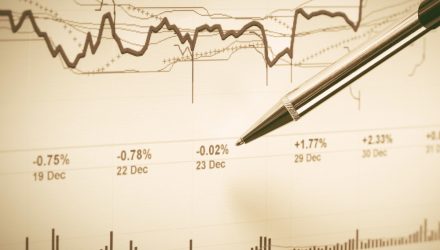Environmental, social, and governance (ESG) exchange traded funds built considerable momentum both in terms of additions to the landscape and, more importantly, significant inflows.
Those are indications the Invesco ESG S&P Equal Weight Fund (RSPE), which debuted last November, could prove to be a solid addition to the ESG ETF fray, particularly as more companies and governments prioritize ESG issues.
Whether its environmental sustainability or diversity, equity, and inclusion, more corporations are placing emphasis on these issues, confirming that there’s long-term viability for strategies such as RSPE.
“Following the unprecedented market and policy momentum behind ESG in 2021, investors, corporate boards, and government leaders have raised expectations for progress on climate pledges in 2022,” according to S&P Global. “Alongside climate, biodiversity, and other environmental concerns, social issues — like diversity, equity, and inclusion and worker wellbeing — appear poised to remain in the spotlight, particularly as they are increasingly woven into broader ESG discussions.”
Home to 183 stocks, RSPE follows the S&P 500 Equal Weight ESG Leaders Select Index, a data-rich ESG benchmark that meets the demands of asset allocators who are paying more and more attention to ESG ratings and scoring.
“Rising demands for action will likely increase pressure for more accountability, greater regulatory scrutiny, and credible disclosure backed by better data,” notes S&P Global.
The research firm highlights issues such as corporate leaders bolstering ESG skills, “greater scrutiny of corporate sustainability efforts,” and governments taking action on net-zero pledges as being among the driving forces of ongoing ESG adoption.
Due to its stringent, data-heavy inclusion criteria, RSPE fits in with the next generation of ESG investing — one where money managers and investors are demanding more progress on the “S” and “G” in ESG.
“To date, agreement on key metrics and reporting frameworks for environmental factors has crystallized more rapidly than for social factors. But 2022 could bring increasing convergence on the data, metrics, and reporting requirements most relevant to social issues — alongside rising pressure to ensure these metrics measure impact, not just inputs,” adds S&P.
Social issues in supply chains are likely to command more attention in the years to come, as are banks employing ESG standards in lending criteria. Those are important factors for RSPE investors to consider because the equal-weight ETF allocates over 45% of its weight to the technology, industrial, and financial services sectors.
For more news, information, and strategy, visit the Portfolio Strategies Channel.
The opinions and forecasts expressed herein are solely those of Tom Lydon, and may not actually come to pass. Information on this site should not be used or construed as an offer to sell, a solicitation of an offer to buy, or a recommendation for any product.

